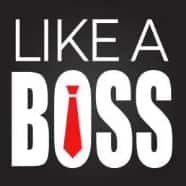Hemant Kanoria, chairman of Srei Infrastructure Finance, loves mythological and spiritual books more now unlike a decade ago when he used to devote most of his time in management books. Kanoria, 57, talks about what business schools can do in creating leaders but why on-the-job training is even more critical. In a freewheeling chat with Moneycontrol, Kanoria also spoke about what’s his idea of team management:
What time do you like to be at your desk?
A: I get up between 5.30-5.45 am every day and I start being at my desk in the office by 10.00 am. Before that I spend time with myself; daily yoga, squash, gym or running, after which I have a relaxed breakfast with my family.
Where is the best place to prepare for leadership: at business school or on the job?
A: Business schools do an exceptional job in creating professional managers, but it is "on-the-job" that brings out the leadership skills in a manager. A business school degree or a certificate helps one to get a structure in their thinking process, but it is the job that provides them with an actual learning experience, which assists in rapid professional development.
Describe your management style.
A: I like delegating to my team members as I have great belief in the capabilities of people. As I completely delegate therefore the process of identifying competent and experienced leaders sometimes becomes arduous. I believe that it is better to identify and build the right team of competent professionals, who can then be empowered to conduct the business efficiently and effectively.
Are tough decisions best taken by one person or collectively?
A: Whenever tough decisions are taken, they have to be undertaken with a positive mindset. Sometimes it can be a collective decision and/or by one person depending upon circumstances and available time frame. However, when a tough decision is taken it is the responsibility of the leader to get the buy-in of all the team members. So, even if it is not a collective decision to begin with, by the time implementation happens it becomes collective.
Do you want to be liked, feared or respected?
A: I always want to be respected as a leader but sometimes it may be appropriate to be liked and in certain rare circumstances it may also border on being feared. So, a leader, depending upon the situation, has to take a decision on how he or she should be viewed by his or her colleagues.
What does your support team look like?
A: I have very few members in my support team as most of the businesses are run by leaders, CEOs and Managing Directors, who report to their respective Board of Directors. However, the small team that I have is of people who are solution oriented and are positive minded professionals.











